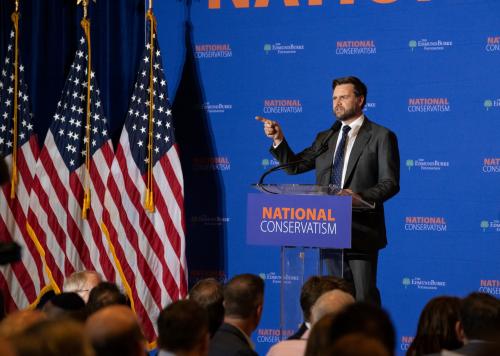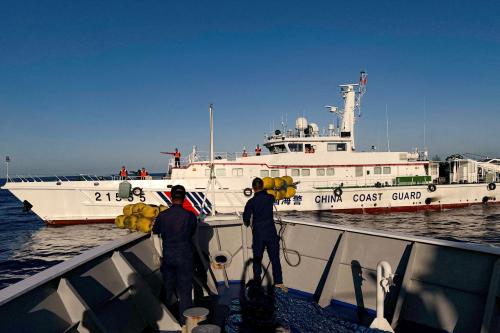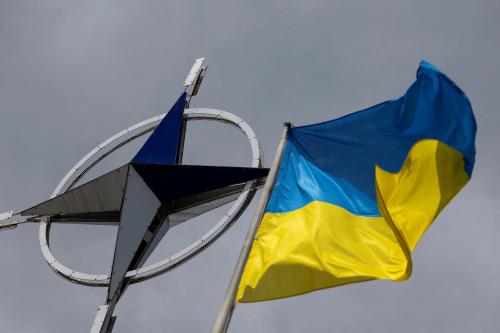

10:00 am EDT - 11:00 am EDT
Past Event
On July 9-11, 2024, U.S. President Joe Biden will welcome the leaders of NATO allies to Washington for the alliance’s 75th anniversary summit. The landmark summit is coming at a critical time for the war in Ukraine and as the U.S. presidential campaign gets into full swing. The alliance, now counting 32 members, is undergoing its own leadership transition as longtime Secretary General Jens Stoltenberg prepares to pass the reins to Dutch Prime Minister Mark Rutte. Meanwhile, Ukraine’s future hangs in the balance amidst Russian bombardment of its cities and continued division among NATO allies about its path to membership. And allied territorial deterrence and defense acquire new meaning as Russian hybrid actions against member states intensify.
On July 3, the Center on the United States and Europe at Brookings convened a panel of experts to discuss the state of European security and trans-Atlantic relations, how the results of elections in France and United States might affect NATO’s ability to counter its challenges, and expectations for the summit.
Viewers submitted questions via email to [email protected] and via X (formerly Twitter) using #USEurope.



Moderator

Constanze Stelzenmüller
July 12, 2024

Ryan Hass
July 9, 2024

Michael E. O’Hanlon
July 9, 2024